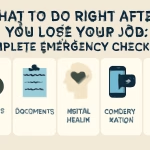Think about this. You want to build a market in your town. You hire a builder. But you worry. What if they don’t finish?
Being bonded is like having a promise. This promise keeps you safe. It shows the builder will do the work.
A bond in money is a tool. It’s not like bonds you can buy. It’s a deal with three people. The builder is one. You are two. A bond company is three. The bond company makes sure the builder does their job. If they don’t, they pay you back.
This idea is old. Traders used it long ago to stay safe. Today, bonds help many areas. It helps buildings and roads. It handles risk and gives safety.
This guide will teach you about bond types. You’ll learn how they work. You’ll see the good and bad sides. This will help you make smart choices.
What Is a Bond and How It Works
Let’s make it simple. A bond in money is a promise. It has three people.
First is the main person. This is often a builder.
Next is the buyer. This is who needs the work done.
Last is the bond company. This is who backs the promise.
When the main person fails, the bond company pays the buyer. This adds safety. It makes sure people do what they say.
- Main person: Does the project and takes the risks.
- Buyer: Gets a promise of good work.
- Bond company: Pays money if things go wrong.
This three-way deal keeps business fair. You’ll see it in buildings and roads. It’s simple but strong.
Main Types of Bonds
Business Bonds vs. Work Bonds
Business and work bonds do different jobs.
| Bond Type | What It Does | Where You Use It |
| Business Bonds | Make sure you follow rules | License bonds for businesses |
| Work Bonds | Promise good project work | Work bonds for buildings |
This helps you pick the right bond.
Special Bond Types
- Trust Bonds: Keep businesses safe from worker theft.
- Money Handler Bonds: Make sure people who handle money do their job right.
- Pension Bonds: Cover pension funds under U.S. law.
- Service Bonds: Keep clients safe from theft by workers.
Each bond type adds safety and builds trust.
Bonded vs. Insured: What’s Different
| What | Bonded | Insured |
| What it covers | Pays if main person fails their job | Pays for losses from bad events |
| How it works | Bond company promises to pay buyer | Insurance company promises to pay back |
| How to claim | Buyer files with bond company | Policy holder files with insurance |
| Who pays back | Bond company pays then asks main person to pay back | Insurance pays direct |
| Where used | Work bonds and business promises | Property and car insurance |
While insurance handles losses, a bonded deal makes sure promises are kept. Many businesses need both.
Good Things About Being Bonded
Being bonded brings real benefits. It shows you mean business.
- Makes you look good to clients. They see you care and feel safer.
- Opens doors to more projects. Many public jobs need bonds.
- Gives you an edge when bidding. You stand out from other firms.
- Helps handle risk. The bond company checks your work.
- Makes your name better. Word spreads when you do good work.
Real story: A British builder won a job because they were bonded. Their promise helped them get picked. This led to more work.
Risks and Bad Points
Being bonded isn’t all good. Here’s what to watch for:
- Pay Back Risk: If a claim happens, you have to pay the bond company back. This can hurt cash flow.
- Credit Problems: Poor credit means higher costs. You need good debt history.
- Hard Checking: Bond companies dig into your money past. It takes a long time.
- Small Coverage: Bonds only cover certain jobs. They won’t protect against all risks.
- Cost Over Time: Annual renewals can add up over time.
Knowing these limits helps you plan better.
Cost Breakdown and Price Factors
Knowing costs helps you budget.
| Cost Part | What It Is | Range |
| Rate | Percent of bond amount | 1-15% of bond value |
| Checking Fees | One-time charge | $100-$500 |
| Security Need | Cash held as security | 10-100% of bond value |
| Renewal Costs | Annual fees | 25-50% of first cost |
Things that affect price:
- Credit Score: Better scores lower your cost.
- Business Experience: Old firms get better rates.
- Bond Type: Hard bonds cost more.
- Market Conditions: Interest rates affect bond markets.
Real example: A firm with good credit might pay 1.5% for a $100,000 bond. A new firm could face 10% plus security.
How to Apply Step by Step
- Find Out Your Bond Needs
Think about your project size. Are you bidding on a government deal? List your duties. - Find a Good Bond Provider
Shop around for bond companies. Compare quotes and check their name. - Get Your Papers Ready
Gather money statements and credit reports. The bond company will review your debt and assets. - Send in the Application
Fill out the form. Attach your papers and sign the deal. - Checking and Approval
The bond company reviews your application. This can take 1-4 weeks. - Pay Costs and Fees
Once approved, pay the first cost. If security is needed, move funds to the bond company. - Get and Use Your Bond
The bond company gives you the bond paper. File it with the buyer and start work. - Handle Renewals and Claims
Track renewal dates. If a claim happens, work with the bond company to fix problems.
Papers You Need
- Money Statements: Balance sheet and income statement.
- Credit Reports: Personal and business credit history.
- Business Plan: Project scope and budget.
- Experience Records: Past project summaries.
- Security Papers: Asset checks and cash deposits if needed.
- Licenses: Industry licenses and certificates.
Use this list to make sure you have what you need.
Industry Needs by Sector
| Industry | Bond Type Needed | Key Duties |
| Building | Work Bonds | Finish projects on time |
| Auto Dealers | Dealer Bonds | Keep customers safe from fraud |
| Freight Brokers | Broker Bonds | Make sure payment to carriers |
| Liquor Businesses | Tax Bonds | Pay taxes on alcohol |
| Notaries | Notary Bonds | Keep public safe |
| Government Deals | Deal Bonds | Meet government project specs |
| Business Licensing | License Bonds | Follow trade rules |
Different sectors have unique legal duties. Check your industry rules.
Common Mistakes to Avoid
- Wrong Bond Type: Don’t think all bonds work the same.
- Too Low Coverage: Setting limits too low can cause problems.
- Not Fixing Credit: Poor credit can lead to high costs.
- Missing Papers: Missing papers delay the process.
- Missing Renewal Dates: Letting your bond lapse causes problems.
- Not Knowing Payback Terms: Remember, you have to pay back if a claim is paid.
Time Expectations
- Application Prep: 1-3 days to gather papers.
- Provider Selection: 2-5 days to compare quotes.
- Checking Review: 1-4 weeks based on complexity.
- Approval: 3-7 days after checking clears.
- Renewal Cycle: Annual; allow 2-4 weeks.
Fast services may cut time to 3-5 days but cost more. Always plan buffer time.
Final Thoughts
Being bonded is a smart move for many businesses. It shows you care about your work. It helps you get more jobs. It gives clients peace of mind.
But remember the costs and risks. Make sure you understand the terms. Pick the right bond type for your needs. Keep your credit score good.
If you follow these tips, bonding can help your business grow. It’s not just about meeting rules. It’s about building trust and showing you’re serious about your work.
Take time to learn about bonds. Talk to bond companies. Get quotes. Make the choice that’s right for your business. Your clients will notice. Your business will benefit.
FAQ Section
Q1: What’s the difference between bonded and insured?
Being bonded gives a promise that duties will be met. Being insured covers losses from bad events.
Q2: How much does it cost to get bonded?
Costs vary by credit and bond type. Rates range from 1-15% of bond value, plus fees of $100-$500.
Q3: Can I get bonded with bad credit?
Yes, but expect higher costs or getting turned down. Improve your credit score first.
Q4: Do I need to renew my bond each year?
Most bonds need annual renewal. Plan for 2-4 weeks to avoid gaps.
Q5: What happens if a claim is filed?
The buyer files a claim. If valid, the bond company pays and then wants payback from you.
Q6: Can I cancel my bond?
Yes, but terms vary. Tell the bond company in writing. There may be fees.





